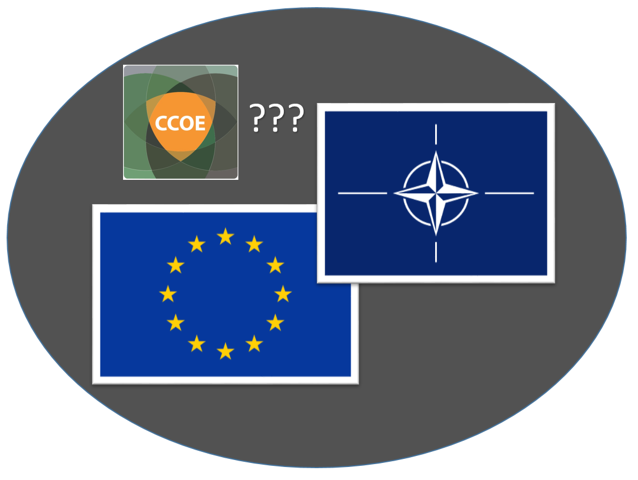Coming closer – EU and NATO – a comprehensive approach?
On Monday, 22 June 2015, the CCOE attended the seminar on European Union (EU) and North Atlantic Treaty Organization (NATO) Capacities in a Changing World. The seminar was organized by the Netherlands Atlantic Association and the Netherlands Institute of International Relations Clingendael in the Press Centre ‘Nieuwspoort’ in The Hague.
The world is changing. Europe’s security environment is challenged, which raises questions about the responses of NATO and the EU. How do they respond to these challenges? Inevitable, one will have to look at the available capacities of both organizations. The seminar assessed the consequences of the changing security environment for the capacities of the EU and NATO. What capacities, military and non-military, are needed? How to deal with the situation emerging in the South of Europe? What will be the response to the crisis in Ukraine?
The seminar was organized in a way that first a practitioner presented his views, where after an academic approach reflected the statements of the practitioner. Four speakers accepted this challenging topic and discussed the development of capacities in regards to NATO and the EU. These four speakers were Jamie Shea, Deputy Assistant Secretary General for Emerging Security Challenges at NATO; Christian Mölling, associate at the International Security research division of the ‘Stiftung Wissenschaft und Politik’; Brigadier General Roland van Reybroeck , director of the European Defence Agency Cooperation, Planning & Support Directorate; and finally, Luis Simón, research professor International Security at the Institute for European Studies at the Free University in Brussels.
The presentations and panel discussion afterwards were very fruitful. Both the EU and NATO emphasized the importance of comprehensives: civilian and military efforts to confront threats and security issues. In the end, whereas NATO mostly possess military measures, the EU has non-military instrument at its disposal to deal with security issues. Comprehensiveness is key in confronting contemporary challenges and threats. Civilian and military efforts should complement one another. To support this process is exactly the main mission of the CCOE. Therefore, this seminar was highly interesting in the broader, strategic picture of the importance of CIMIC/CMI in a changing world. There is yet not one, clear, obvious strategy how to deal with the issues in the South and East of Europe, however, one thing may be certain, both organizations have to come closer to one another, because the moment is clearly present. Can the CCOE support to bridge CIMIC/CMI efforts for NATO and EU?
The Article is written by CCOE/ LL Branch Intern, Lisa Ziekenoppasser (NLD)

